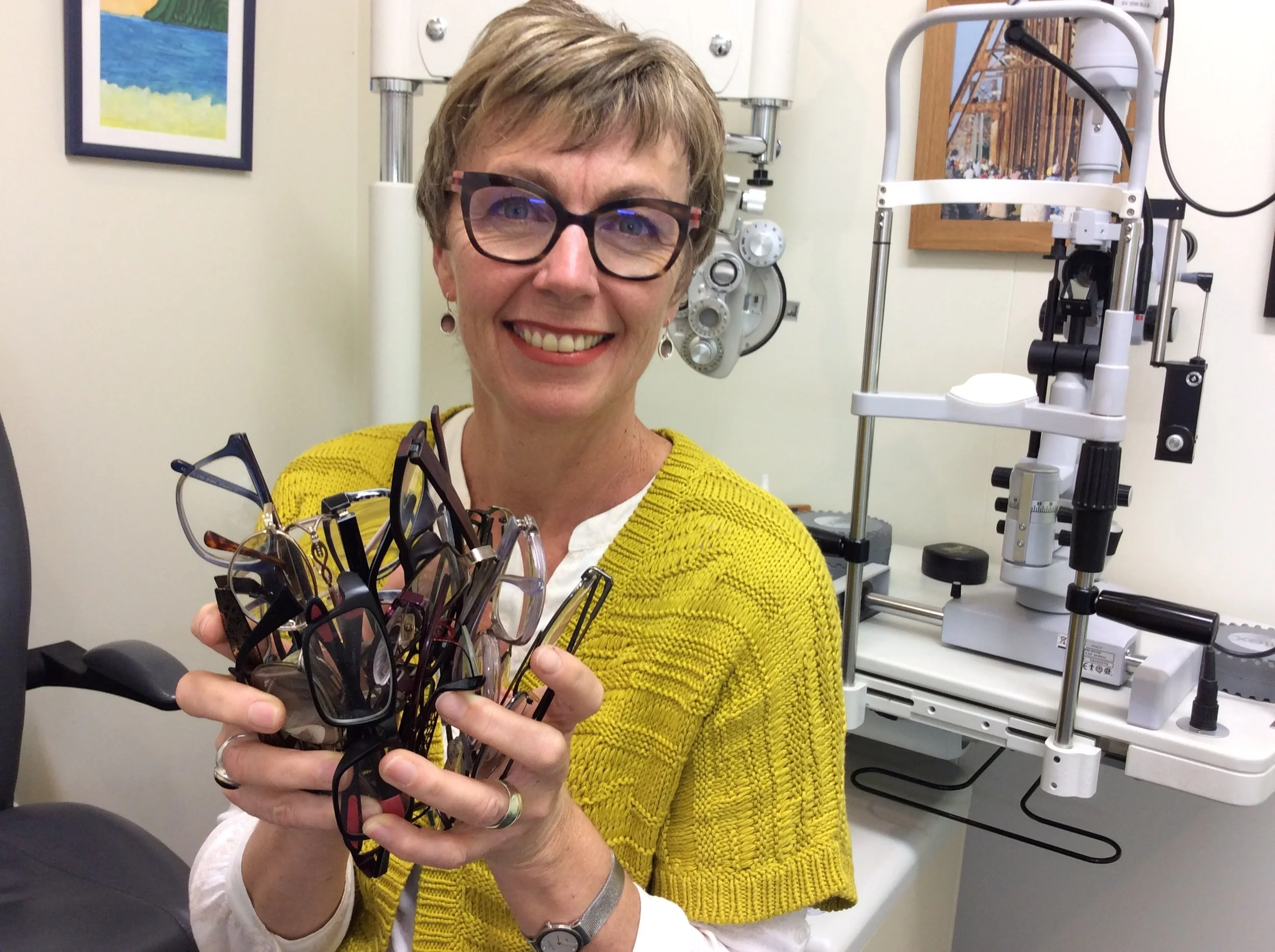Most medications have some side effects, which are balanced against the health benefits. Fortunately serious side effects from eye drops are very uncommon. One of the fact sheets published by Glaucoma NZ outlines Eye Drop Side Effects - it is a good reference. This is part of their drive to support and inform people with glaucoma.
VOSO - helping restore sight
Volunteer Ophthalmic Services Overseas (VOSO) is a New Zealand charitable trust that provides free eye aid to the Pacific. This completely voluntary based service has been supported for over 30 years by optometrists, and ophthalmologists alike.
VOSO plays a huge role in helping restore sight to those less fortunate in the Pacific Islands through sight-saving surgery (cataract) and the distribution of thousands of pairs of glasses each year. Donated sunglasses are also a valued commodity in the sunny and hot Pacific Islands. McDonald Adams is pleased to collect your donated glasses and sunglasses for this wonderful cause.
Are Screens the new Smoking?
As optometrists we are hugely concerned about the increase in young people becoming short-sighted. We wonder are screens the new smoking? Is all this close work causing more young people to have difficulty seeing clearly in the distance?
The two main concerns are: 1 children becoming myopic (short-sighted) at a younger age, and 2 the rate of progression of myopia through the teenage years.
Now there is science to support the message that outdoor time will delay the start of myopia. Such a simple concept, which all parents have been saying for all time - go outside and play.
There are many online information sites and initiatives to help educate parents, especially parents who are short-sighted as their children are more at risk. The above poster was created by a paediatric ophthalmologist keen to spread the message - outdoor play keeps myopia away. We are currently distributing these to our local early childhood centres, to help people understand the positive health benefits of making sure children get 2+ hours of natural outdoor daylight each day.
If you want any further information please do not hesitate to contact us. If you have concerns about your child’s vision book an appointment today.
Ginkgo Biloba - a natural approach to glaucoma
Many of us are keen to make choices which have a positive impact on health, and there is always interest in alternative treatments. In glaucoma the most widely known alternative treatment is ginkgo biloba.
Glaucoma treatment largely focuses on lowering eye pressure. But it is accepted that other risk factors besides eye pressure are involved - even an ideal eye pressure does not stop glaucoma progressing for all people. If you are looking at the clinical studies, lowering eye pressure is the only treatment which has high levels of scientific evidence to support its efficacy. However there are many studies which have tried to identify other treatments for glaucoma.
Used in Chinese traditional medicine for centuries, extracts of ginkgo biloba leaves have been suggested to treat various conditions, including dementia, tinnitus, and circulatory problems.
For glaucoma different studies have shown that gingko biloba extracts (GBE) may have the following potential benefits:
1. Improved blood flow: Studies in humans have demonstrated improved blood flow near the optic nerve.
2. Neuroprotective effects: Studies have shown that mitochondrial function improves with ginkgo biloba.
3. Antioxidant effect: Ginkgo contains several different flavonoids, which have shown antioxidative properties by delivering electrons to free radicals. Compounds, such as vitamins E and C, also have antioxidative properties. The difference is ginkgo biloba extract flavonoids are able to act at the mitochondrial level.
4. Anti-inflammatory: Gingko has been shown to decrease reactive oxygen species.
Read more about the science in Glaucoma New Zealand’s fact sheet Glaucoma and Ginkgo Biloba.
Videos show how glaucoma impacts on vison.
Each July there is a push to raise awareness of glaucoma, and encourage people over 40 years of age to embrace regular eye examinations. Glaucoma causes damage to the optic nerves. Your eyes tell your brain what you see via your optic nerves. Each optic nerve contains over a million nerve fibres. Early glaucoma is a symptomless condition but as the disease progresses there is a loss of peripheral vision.
Check out the link below which shows glaucoma progressive vision loss in different scenarios; navigating stairs, working with numbers, driving and standing in a kitchen. The videos also show the effects which are seen in our clinical tests.
View videos on Glaucoma In Perspective education website.
Are Glasses an Outdated Way of Correcting Your Child’s Eyesight?
Last month we were fortunate enough to hear Australian Optomerists Kate and Paul Gifford speak at an event in Auckland. This dynamic pair of Aussies are on a mission to educate both the public and optometrists about Myopia Control. They were preaching to the converted - we too are very passionate about spreading this important message. Kate and Paul have now added a blog to their very useful website, My Kid's Vision. Guest writers are contributing and we recommend you check it out.
My Kid's Vision - Are Glasses an Outdated Way of Correcting Your Child’s Eyesight?
This will appeal to all those myopes out there, imagine a world when we don't simply add stronger lenses each teenage year as vision deteriorates. Read the post and share this important message.












